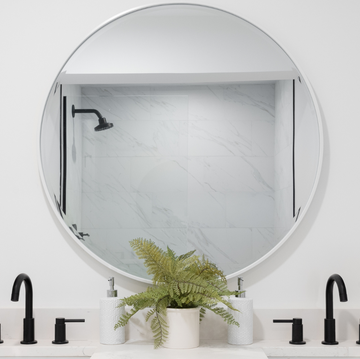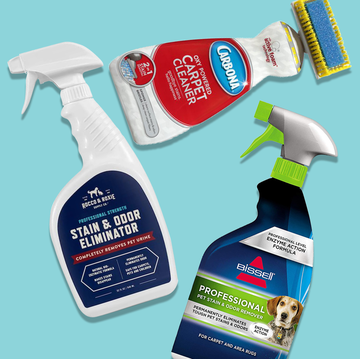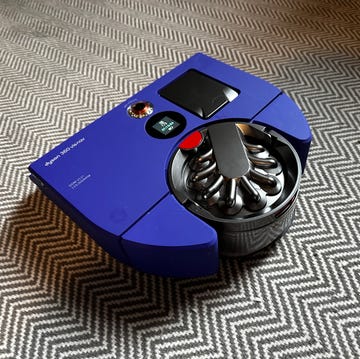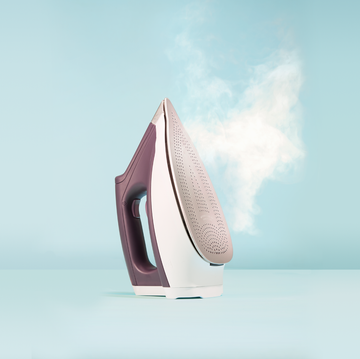There's nothing quite as gratifying as sliding into clean sheets after a long day — so why not capitalize on that feeling every week? Most of us spend upwards of eight hours per day in bed, either relaxing, sleeping or attempting to sleep. The bad news: dead skin cells, dust mites, germs and body oils that can cause allergies, skin irritation and acne accumulate each night.
To help you stay on top of your laundry schedule, our laundry expert shares how often to wash your sheets, as well as your comforter, duvet cover, pillowcases and more. Plus, keep scrolling for the best way to wash your sheets.
How often should you wash your sheets?
Long story short: You should be changing and washing your bed sheets once a week. "It’s not a problem to skip a week every so often, but try not to go longer than two weeks between launderings," says Carolyn Forté, executive director of the Good Housekeeping Institute Home Care & Cleaning Lab.
Night after night, your sheets are collecting germs, dead skin, sweat, pet danger and body oils. Not to mention, dust mites — while not harmful to humans per se — can trigger allergies and asthma attacks, according to the American Lung Association. If you allow pets to sleep in the bed or anyone in your household has dust or pollen allergies, sweats excessively or is experiencing an infectious illness, consider washing your sheets even more frequently.
If you decide to skip a week for the sheets, we recommend still washing or changing your pillowcases — which accumulate oils, dirt, bacteria, sweat and even saliva from your face and hair. It's essential to protect your face, as the skin tends to be more sensitive to germs and allergens than other parts of the body.
How often should you wash other bedding?
- Pillowcases: Once per week, even if you decide to skip a week changing your sheets.
- Duvet covers and comforters: If you're using a top sheet, duvets and comforters need a lot less cleaning — you can get away with washing them every two to three months. Even less (two to three times per year) if you aren't prone to allergies and don't have pets.
- Mattress pads or protectors: "These items also harbor sweat and dust mites," says Forté. Wash your mattress protectors every one to two months, depending on your hygiene habits and personal preference.
- Mattress: Every three months, we recommend vacuuming your mattress with an upholstery tool and cleaning any spots with an upholstery cleaner. (Find our full step-by-step tutorial here.)
What's the best way to wash sheets?
Just as important as how often you wash your sheets is making sure you're using the right methods to get your sheets really clean and extend their life. We asked Forté to share her best advice for how to wash this bedding essential.
Treat stains prior to washing
"If there are no stains, there's no need pretreat the sheets," says Forté. "But it's always a good idea to check pillowcases for makeup residue." If there are noticeable stains, she recommends using a prewash stain remover like Shout Advanced Ultra Gel to help get any spots out. Or, if you're dealing with a really tough stain, try OxiClean Max Force Laundry Stain Remover Spray.
Then add a top-performing laundry detergent, like Good Housekeeping Seal holder Persil ProClean + Stain Fighter Liquid Laundry Detergent — but just be careful not to overload your machine. "Sheets needs to circulate to get clean," says Forté. "Today's enormous washers can probably hold several sets, but you should never cram them in. And if your washer has an agitator in the middle, don't wrap the sheets around it. This can cause them to wrinkle or tear. Instead, lay them in separately without wrapping them."
Wash with higher temps on a normal cycle
To boost cleaning (which helps if you suffer from allergies), increase the water temperature. Choose a cleaning cycle that uses the hottest water safe for the sheets' fabric (check the care tag). "The hotter the water, the more germs you kill," says Forté.
Note that some new washers have dedicated cycles just for washing sheets. But if yours doesn't, select the "normal" or "casual" cycle instead of "heavy duty." Choosing a heavy-duty cycle isn't necessary, unless your sheets are a serious mess. "Sheets don't need excessive agitation to get clean, and the heavy-duty cycle can cause tangling and wrinkling," says Forté. "It's fine to wash sheets on the normal, regular or colors cycle. These options are gentler and shorter than heavy duty and, depending on the machine, will cool water gradually for less wrinkling."
If the care tag recommends a gentle cycle, choose the warmest water that setting will allow. But, don't worry: "You can get sheets clean in cold water," Forté says. "Just use a deep-cleaning detergent, like GH Seal Star Tide Hygienic Clean Free & Gentle."
Tumble dry sheets on low
While bedding might take a little longer to dry than a regular load of clothes, leaving sheets in the dryer longer "just in case" is a mistake. It's best to tumble dry sheets on low heat for the shortest time possible to avoid over-drying them — and yes, this could take some trial and error to get right! "This is the best method to minimize shrinkage and reduce wrinkling too," says Forté.
You also may want to keep your sheets separate to avoid over-drying issues, since not all linens are created equally. "Sheets dry faster than towels, so when the sheets are dry, the towels will likely still be wet if you dry them together," says Forté. If you're aiming to combine loads, she says it's probably okay to put some light cotton fabrics in with sheets, but towels are problematic.
Lauren is a senior editor at Hearst. She was previously the senior editor at WomansDay.com and the home editor at GoodHousekeeping.com and HouseBeautiful.com. Her book club, ramen, and jean jackets are a few of her favorite things.
Alyssa Gautieri (she/her) is the associate lifestyle editor for Good Housekeeping, where she covers all things home and interior design. Prior to joining GH in 2022, she wrote for publications including ELLE Decor, Chairish, BobVila.com, Unique Homes Magazine and LODGING Magazine, in addition to crafting product copy for home brands like BrylaneHome and VIGO Industries.
Carolyn Forté brings more than 40 years of experience as a consumer products expert to her role as executive director of the Good Housekeeping Institute's Home Care and Cleaning Lab. Using deep analytical testing and writing expertise in appliances, cleaning, textiles and organizational products, she produces cleaning and home care advice for GH, has authored numerous books and bookazines for the brand and partners with the American Cleaning Institute to co-produce the Discover Cleaning Summits. She holds a bachelor's degree in family and consumer sciences from Queens College, City University of New York.













